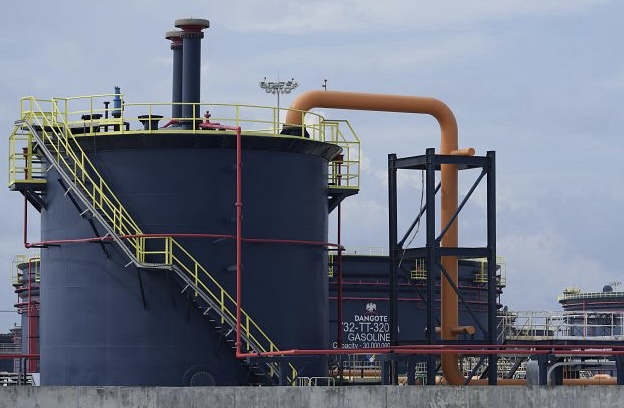- Nigeria’s petrol imports from Malta fell by 60 per cent in 2024 as the Dangote refinery expanded domestic output.
- Malta shipments had surged unusually in 2023, prompting scrutiny over blending practices and routing transparency.
- Rising local refining capacity has pushed Nigeria’s petrol import levels to an eight-year low and could position the country as a net exporter.
Nigeria’s petroleum import patterns are undergoing one of their sharpest changes in years, after new data revealed a steep fall in shipments from Malta as domestic refining gradually displaces foreign supply.
The country’s intake of petrol and related products from the small Mediterranean nation has dropped by around 60 per cent in 2024, marking a decisive turn in the long-standing reliance on European cargoes.
Figures from TradeMap show that Nigerian purchases of petroleum oils and oils derived from bituminous minerals sourced from Malta fell to roughly 818 million dollars this year, down from more than 2.1 billion dollars in 2023.
The correction comes just months after the Dangote refinery began easing itself into full commercial operations, placing pressure on trade routes that had expanded dramatically only a year earlier.
Nigeria had barely recorded any imports from Malta between 2017 and 2022. Yet 2023 saw a surge that raised eyebrows across the industry. The jump coincided with reports of offshore blending facilities and unconventional fuel routing, stoking debate about supply transparency and the broader pressures on Nigeria’s foreign-exchange reserves.
Aliko Dangote himself suggested that traders, certain NNPC personnel and terminals had been involved in setting up a blending operation in Malta, a claim that intensified scrutiny of the transactions.
The shift now unfolding points to the corrective force of domestic capacity. Early in 2024, the 650,000-barrel-per-day Dangote Petroleum Refinery began turning out diesel and aviation fuel, before extending production to petrol. Analysts say this gradual ramp-up is feeding directly into lower import bills and shrinking the role of European suppliers.
Reports tracking Nigeria’s trade showed that by the first quarter of 2025, the country’s petrol import bill had fallen by more than half year-on-year, a development tied largely to Dangote’s growing supply. Shipping data similarly indicated that seaborne imports of clean products declined by about 39 per cent in the first seven months of 2025, compared with the same period a year earlier.
Jide Pratt, country manager at TradeGrid and chief operating officer at AIONA, said Nigeria’s transition hinges heavily on the refinery’s operational stability. He noted that output can dip sharply whenever the refinery undergoes maintenance, particularly when units such as the RFCC are taken offline.
According to him, “each time the refinery has to slow down, production of PMS can fall from around 70 per cent to closer to 30 per cent,” a risk that highlights the absence of other functional local refineries.
Domestic Refining Gains Pace as Malta’s Role in Nigeria’s Petrol Supply Fades
The drop in imports is broadly consistent with the refinery’s reported performance. The Lagos-based complex, the world’s largest single-train facility, has continued to expand its output of petrol since mid-2024. Industry assessments published later in 2025 described Nigeria’s seaborne petrol imports as drifting to their lowest level in eight years.
The shift, they said, was effectively a substitution effect, as Dangote barrels replaced European parcels that had long filled the country’s supply gap.
Growing domestic volumes have also strengthened projections that Nigeria could soon re-emerge as a net exporter of refined fuel, a position it has not held for decades.
Analysts argue that if the refinery’s operations stabilise and output remains consistent, Nigeria could transform the structure of its fuel economy, saving billions in foreign exchange and bringing an end to the cyclical dependence on imported petrol.
At the same time, crude shipping data from S&P Global Commodities at Sea indicated that Nigeria’s seaborne crude loadings averaged 1.676 million barrels per day in October, the lowest level since April.
Loadings have softened for two straight months, after a peak of 1.873 million barrels per day in June, reflecting the fragile but ongoing efforts to restore upstream stability.
The broad picture, however, remains that Dangote’s refinery is now the principal force reshaping the downstream market. As the plant continues to scale up, the long-standing trade rhythms involving Malta may fade further into the background, marking a rare moment of structural change in a sector often defined by shortages, volatility and import reliance.



